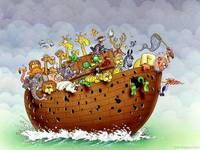The following is the Cover The Uninsured Week News Digest for the week of January 17, 2005.
We invite you to visit CoverTheUninsuredWeek.org where you will find news and information about Cover the Uninsured Week and other ongoing efforts to help get America covered. The site offers facts about the uninsured, personal stories, links to the participating organizations and resources for those seeking health care coverage.
Here are top stories from news sources across the country about the issue of the uninsured.
News Summaries
A Weekly Digest of News on the Uninsured
News & Opinion
Incoming HHS Head Discusses Planned Medicaid Overhaul
Leavitt favors a cap on federal spending, but more flexibility in how states use funds
Source(s): Robert Pear, The New York Times (Jan. 19)
Health Care Costs Are Americans' Major Health Policy Concern, Survey Shows
Reducing the number of uninsured is one of the top three priorities; malpractice reform ranks low
Source(s): Jim Abrams, Associated Press (Jan. 11); The Atlanta Journal-Constitution (Jan. 11); Marsha Shuler, The Advocate (Baton Rouge, LA) (Jan. 12)
Kennedy Advocates for Universal Coverage with Medicare Expansion
Democrats' elder statesman rallies party to push reform agenda
Source(s): John O'Neil, The New York Times (Jan. 12); Charles Babington, The Washington Post (Jan. 13); Maura Reynolds, The Los Angeles Times (Jan. 13)
Gingrich Promotes Market-Based Health Reform
Former speaker was early supporter of HSAs
Source(s): Steve Lohr, The New York Times (Jan. 16)
Consumers Are Either Unaware of HSAs or Have Doubts about Them
14.3 million Americans spent more than one-quarter of their income on health care last year
Source(s): Sarah Rubenstein, Wall Street Journal (Jan. 12); Dina ElBoghdady, The Washington Post (Jan. 16)
OPINION: HSAs Will Not Solve Health Care Cost Problem
Employees are concerned they will end up paying more of the health care tab
Source(s): James Flanigan, The Los Angeles Times (Jan. 16)
OPINION: Rise in Health Care Spending Is Not a Concern
Employer-based system of coverage is what makes the system inefficient
Source(s): The Boston Herald
TennCare Cuts Illustrate National Medicaid Trend
Governors of New York and Florida also announce cuts
Source(s): Associated Press (Jan. 11); Alisa Ulferts, St. Petersburg Times (Jan. 12); Diane Hirth, Tallahassee Democrat; Tony Pugh, Tallahassee Democrat (Jan. 13); Andy Miller and Patrician Guthrie, The Atlanta Journal-Constitution (Jan. 14); Alice Dembner and Rick Klein, The Boston Globe (Jan. 15); Al Baker, The New York Times (Jan. 18); Ceci Connolly, The Washington Post (Jan. 18)
Florida Papers Examine Governor Bush's Medicaid Privatization Plan
In a commentary, Bush describes proposal
Source(s): Jeb Bush, Orlando Sentinel (Jan. 12); Tallahassee Democrat (Jan. 12); Sun-Sentinel (Jan. 15)
Opinion: Medicaid Reform Needed in New York, but Pataki's Plan Raises Questions
Federal financing changes will affect outcome of plan
Source(s): The New York Times (Jan. 19)
CoverTheUninsuredWeek.org a project of The Robert Wood Johnson Foundation
Copyright © 2003 The Robert Wood Johnson Foundation All rights reserved
